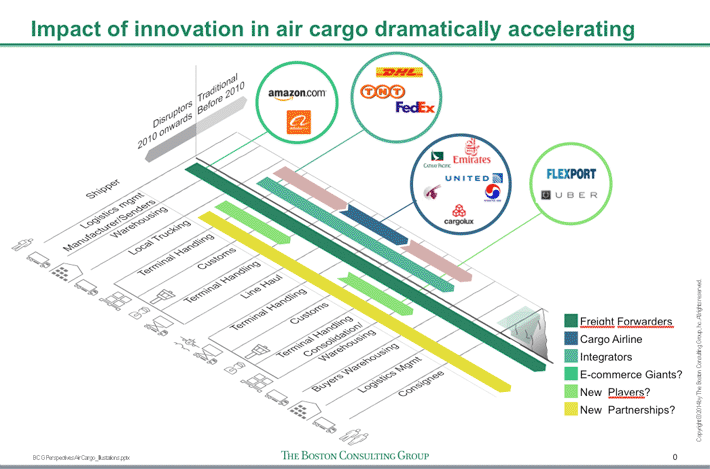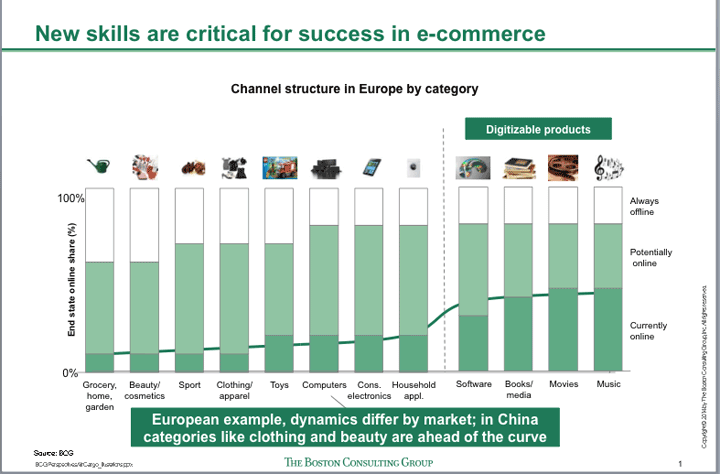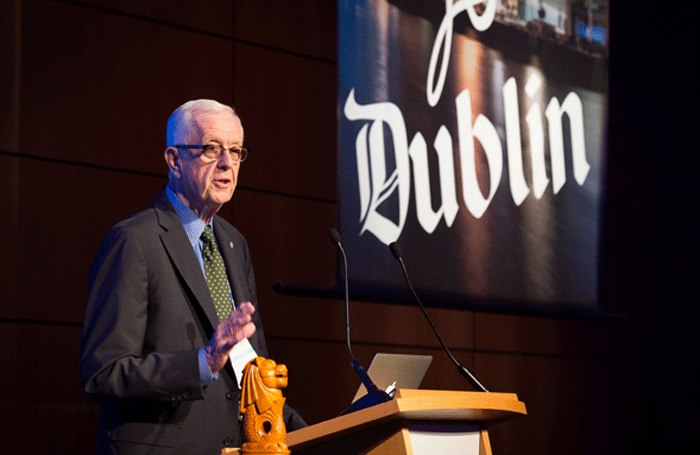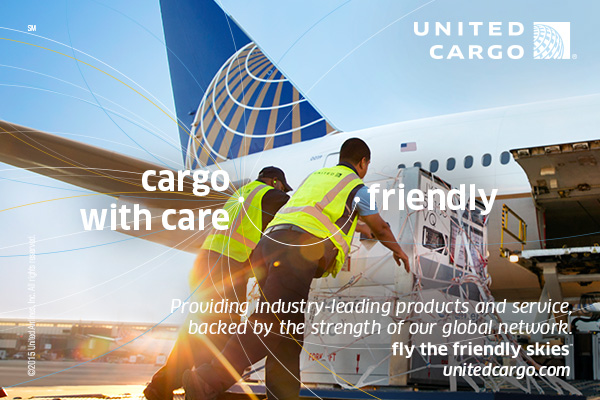 |
 |
 #INTHEAIREVERYWHERE |
| Vol. 15 No. 82 | Friday
October 21, 2016 |
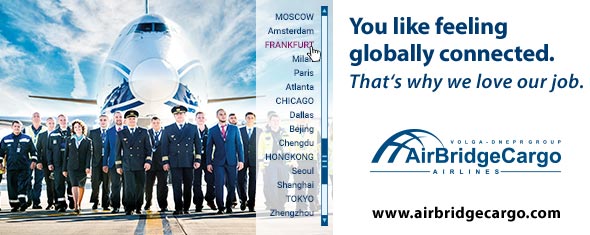 |
|
Bozena
Multack is Senior Regional Performance Manager Cargo
Operations EMEI for United Airlines Cargo. Born To Fly
Bozena Multack studied Aeronautical Science at The Embry
Riddle University in Miami, Florida.
These days, Bozena Multack is based at Building 579C
in the heart of Frankfurt Cargo in Germany. Market Savvy Is Key
“Knowing the market is key.”
Education Is Integral To The Future
As for what air cargo can do better, without hesitation
Bozena proclaims:
Off Time
“I read a lot. That includes almost anything I
can get my hands on, including a good book. |
 |
|
Editors
Note: As noted here, TIACA ACF 2016
meets in Paris next week. Undoubtedly, plenty of bright
ideas and big thinking will run up and down the halls
of the Port de Versailles Expo Center, the showplace
for the event.
In recent
years, air cargo industry profitability has experienced
the ups and downs of the global economy, disruption
by new players, and changing customer demands. Cargo
volumes and prices saw a low point during the financial
crisis and although volumes are recovering, yields remain
depressed. This in turn has resulted in many mixed airlines
prioritizing the passenger side of business even further,
and therefore limiting investments in cargo. The combination
of disruption and customer value drivers changing with
lower (and in many cases misplaced) investments led
to many airlines falling behind, dragged down by obsolete
business models and paradigms.
In the face of all this turmoil, the air cargo industry has been surprisingly satisfied with the status quo, as the industry has made very little real progress in embracing technology and new paradigms that leverage new technology. Aren’t we still trying to fully implement Cargo 2000? The difference today is that there are a great number of smart people sitting outside the industry who fully realize the disfunctionality and therefore the opportunity to disrupt. Whether it is the example of Amazon trying to control its own destiny and at the same time becoming the third largest integrator in North America, or Uber eyeing the massive opportunity that exists in owning the last mile, the next generation of innovation will force real change in the industry. As the graphic below illustrates, the industry has been quite static in terms of the business model since its inception, but the next five years will see more innovation and disruption than the previous fifty years combined. We believe that some current players are realizing this coming wave and have found a way to embrace it. For example, IAG’s launch of their “Hangar 51” initiative invites entrepreneurs from outside the industry, giving them the opportunity to incubate their ideas in a fast-track environment with the stated goal of “transforming aviation and revolutionizing the customer experience.” While the passenger division is leading Hangar 51, the cargo side of the business plans to leverage it as well. Innovation is not something to be feared, but rather embraced, since it opens up more opportunities to better serve the customer base while earning higher yields at a lower cost. In order to avoid getting left behind, we believe airlines must focus their investments on digital, product, and service improvements, instead of aircraft. The aspiration should not be size and volume, but rather understanding the underlying needs of customers and anticipating and participating in the trends they create. We believe there may not be a magic bullet, and instead recommend that airlines try and learn through targeted partnerships and small investments. Deep customer research, as illustrated below, such as which flows or commodities are most likely to grow through e-commerce, will serve airlines well to identify the most strategic opportunities. Carriers need to focus on creating the right product and the right mode of interaction with their customer and build the organizational, operational, and digital capabilities to support it. A great part of this paradigm shift is creating a culture that promotes and rewards risk taking and trial and error to enhance nimbleness and reduce complexity.
BCG believes supporting our clients in this endeavor creates significant opportunity and value. As part of our airline practice, we are striving to become the leading air cargo advisor, bringing our clients our unique combination of strategy, industry, and functional expertise. We are uniquely positioned to leverage our deep experience in the cargo, aviation, and industry sectors (e.g. pharma, e-commerce, etc.) with our world class digital, big data analytics, and operations capabilities. We look forward to discussing these perspectives at TIACA's air cargo forum. Fernando Bosch, Neel Jones Shah, Peter Ullrich, and Dirk-Maarten Molenaar Boston Consulting Group |
 |
|
For
some time now, we have wondered why the Air Forwarders
Association (AfA) in the U.S. has not joined FIATA. |
If
You Missed Any Of The Previous 3 Issues Of FlyingTypers
Access complete issue by clicking on issue icon or Access specific articles by clicking on article title |
||
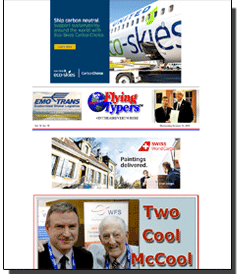 Vol. 15 No. 79 Two Cool McCool The Collaborative Approach Fast Jacques United Chuckles For October 12, 2016 |
 Vol. 15 No. 80 Fall Back HazMat Focus BIFA Come What May Haz-Stash at JFK Thursday Chuckles for October 17, 2016 Why Harald Zielinski Matters |
|
Publisher-Geoffrey
Arend • Managing Editor-Flossie Arend • Film Editor-Ralph Arend • Special Assignments-Sabiha Arend, Emily Arend • Advertising Sales-Judy Miller |
|

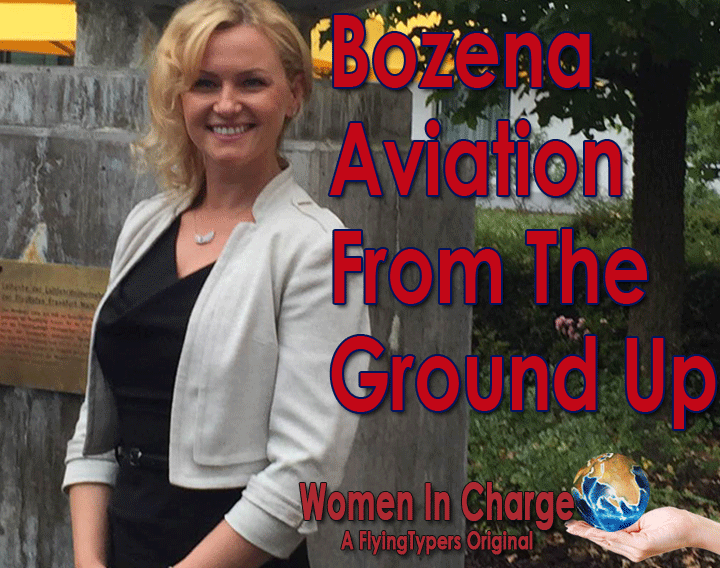
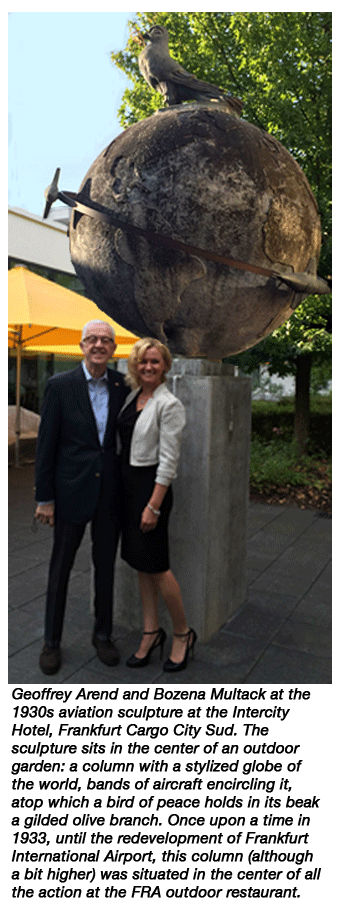 Based
At Cargo City Sud
Based
At Cargo City Sud

